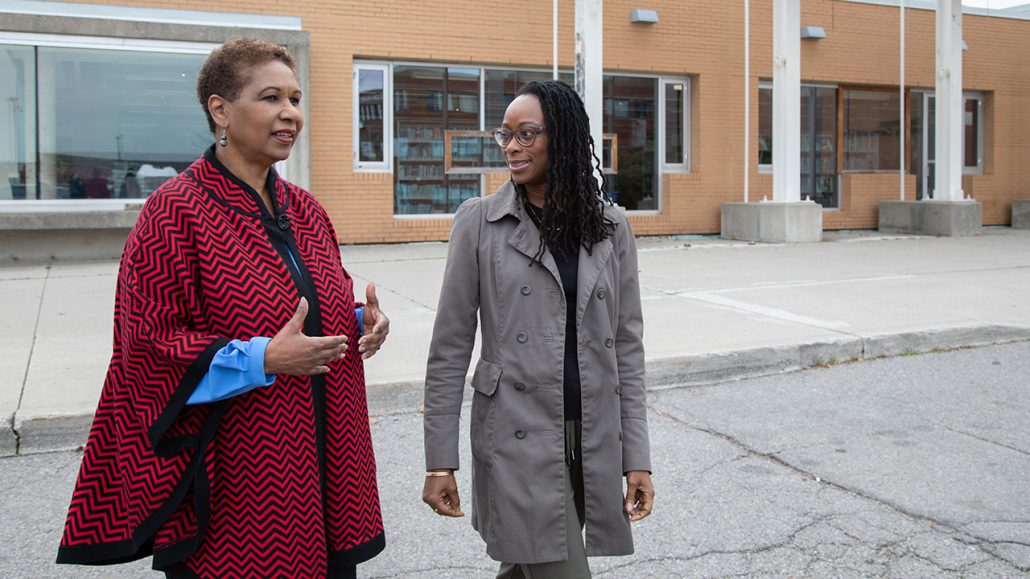

Photo by Daria Perevezentsev
A variety of programs ensure funding and support is there when it is needed most
Institutional resources are not always fairly allocated. Such has been the case for some time, but the past three years during the COVID pandemic lay bare what many had already known: that the existence of economic opportunities and institutional resources in some communities and organizations were scarce — if they existed at all.
As a result, they had to provide their own solutions, often with difficulty. Racism, sexism and homophobia are just some of the realities experienced, as well as other challenges caused by economic and societal realities, including homelessness and intimate partner violence.
When the pandemic hit, these disparities were amplified. The need for programs that addressed all these interconnected challenges became clear to those who worked closely with those affected.
Angela Carter is the executive director of community services at Roots Community Services, which is a United Way Greater Toronto (UWGT) partner. It is focused on providing Black, African and Caribbean Canadians programs through culturally appropriate perspectives within anti-oppression and anti-racism frameworks.
A longtime volunteer before taking up her position, Carter knows firsthand the need for programs that address the inequities that result in various traumatic experiences for those affected, like with intimate partner violence.
“Two-thirds of victims are women and girls,” she said, emphasizing the need for a holistic support system that provides resources to all family members who are often affected. “We want (victims of intimate partner violence) to be safe. Part of what we do is to create safety plans and provide other resources to help them heal from the trauma that they have experienced.”
One such program that offers support through the organization is Black Men Speak Up, which has the goal of reducing incidents of intimate partner abuse. It is a safe space for men who are survivors to speak about trauma and to heal. The program also supports the affected families of survivors.
Roots’ ability to provide this and many other community programs is largely attributed to the United Way’s support. The UWGT’s community investment department is responsible for the relationships between its funded partners. It invests in more than 300 agencies in the Peel, Toronto and York regions, and works with both large organizations and grassroots entities that don’t have charitable status.
“We are a relational funder,” said Adaoma Patterson, who is the director of community investment at the United Way. “We are not just providing the funding (to various agencies) but building capacity, allowing them to do their work more effectively.”
The United Way also works with all levels of government to deliver one-time funding. This was most notably seen during the pandemic when the need was great. Money from the organization’s emergency recovery and support arm was there to provide resources to those in immediate need.
Under its community investment umbrella, the UWGT allocates funds — with a focus on providing resources to underrepresented and traditionally marginalized groups — to a variety of streams, including community program grants, special initiatives, emergency and recovery support, and anchor agencies.
“We always have a commitment to fund Indigenous and Black-led agencies,” said Patterson.
Those organizations designated as anchor agencies receive five-year funding that includes core operating support as well as a dedicated investment in programs that address issues associated with poverty, including homelessness and unemployment.
Roots’ designation as an anchor agency has allowed it to continue providing services to the community knowing that it has the financial stability to offer specific supports when it is urgently needed.
“From an organizational perspective, we reach out to the United Way when we need information, as they understand what’s happening on the ground and what’s going on in communities,” said Carter. “Due to diversity and the various ethnic groups that reside here, we have some uniqueness, and we are able to provide information to the United Way as well. It is a symbiotic reciprocal relationship.”
Carter said much of Roots’ ability to provide ongoing support to the community is attributed to its partnership with the United Way. “They convene and support with the intention of uplifting our community and amplifying our voices,” she said. “They are there to listen, understand and strengthen our community.”